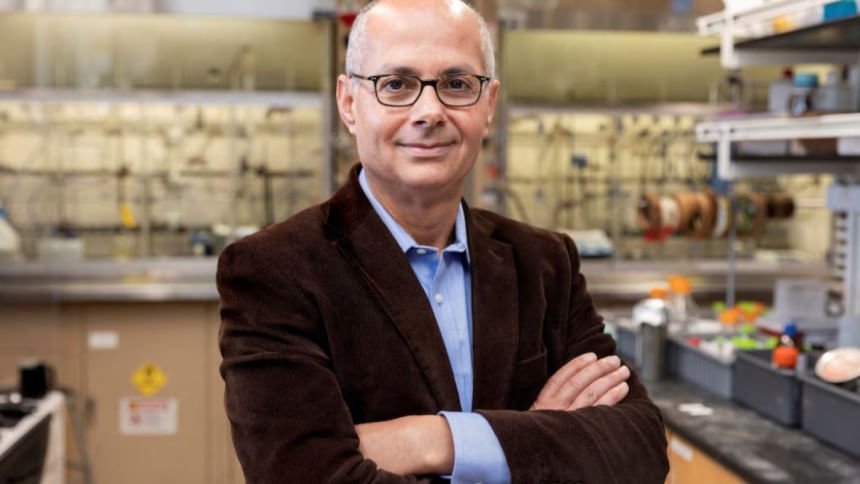Winning a Nobel Prize is widely considered the ultimate acknowledgment of human intelligence and a pinnacle achievement in both creativity and science. Since its inception in 1901, the Nobel Foundation has granted 633 prizes to 1,026 individuals and organizations for pushing the boundaries of knowledge, fostering peace, and improving human well-being. Regrettably, only a few Muslims have been honored with this prestigious award—five for sciences, eight for peace, and three for literature.
This disparity does not stem from exclusion but primarily from a decline in a civilization’s dedication to its historical legacy of exploration. The Muslim world, once renowned for its scientific inquisitiveness and philosophical acumen, has gradually lost its fervor for discovery. The same principles that once illuminated the realms of mathematics, astronomy, medicine, and chemistry with a nearly spiritual commitment to knowledge have, in many instances, diminished into reverence without active exploration, belief without investigation. The diminishing pursuit of knowledge and neglect of the essence of “ilm” (knowledge) that once defined the Muslim world can only be attributed to the civilization itself. The absence of Muslims from the Nobel laureate list is not a narrative of oppression or bias but a testament to waning passion and unrealized potentials.
Among the few exceptions shine remarkable individuals. Dr. Abdus Salam, a Pakistani physicist, became the first Muslim Nobel laureate in 1979 for his role in developing the electroweak unification theory, a groundbreaking advancement in particle physics. In 2006, Dr. Muhammad Yunus from Bangladesh and his Grameen Bank were awarded the Nobel Peace Prize for introducing microcredit, a social innovation empowering millions of underprivileged women and reshaping development economics. Malala Yousafzai, the courageous Pakistani schoolgirl who stood up against Taliban oppression, received the 2014 Peace Prize at the age of seventeen, becoming the youngest Nobel laureate and a voice for silenced girls deprived of education.
In 2015, the Nobel Committee recognized a Muslim scientist in the field of chemistry: Aziz Sancar, a Turkish-American biochemist, for his work in elucidating the complex mechanisms of DNA repair. Ten years later, in 2025, Omar Yaghi, alongside Susumu Kitagawa and Richard Robson, was honored with the Nobel Prize in Chemistry for pioneering reticular chemistry, the technique of interweaving molecules into functional porous materials.
This brings the count of Muslim laureates in science to only five. The stark contrast lies not in intellect but in the environment. The Western world has fostered a culture that values inquiry, whereas much of the Muslim world has engendered systems that fear it. From the ninth to the thirteenth centuries, Muslim scholars translated Greek texts, devised algorithms, studied the stars, and laid the groundwork for present-day algebra, optics, and medicine. During that era, knowledge was viewed as a divine pursuit, with the famous saying “Seek knowledge even unto China” embodying a policy rather than just a proverb. Institutions like Baghdad’s House of Wisdom rivaled contemporary research centers, and scholars from Córdoba to Samarkand considered discovery a sacred obligation.
However, this radiance dwindled as theology overshadowed philosophy and dogma displaced doubt. The decline began with the marginalization of intellectuals like Ibn Rushd and Ibn Sina. Subsequent colonial interventions exacerbated the deterioration, leaving many Muslim nations politically independent but intellectually reliant. Numerous bright minds sought refuge in laboratories in the West, such as Cambridge, MIT, or Berkeley, where freedom of thought replaced fear of retribution. The recurring pattern persists: most Muslim Nobel laureates established their careers in Western academic institutions. Their success does not impugn their faith but rather highlights the failure of domestic systems to nurture their curiosity.
Science thrives on skepticism, not blind obedience. In many Muslim societies, challenging authority is often mistaken for defiance, and conformity masquerades as virtue. Critical thinking is notably absent from classrooms that prioritize rote memorization over logical reasoning. Research funding is inadequate, peer reviews are cursory, and political influence stifles merit. A young physicist in Cairo or Karachi may spend more time navigating visa requirements than conducting experiments. Without autonomy, institutions become superficial rather than generative.
Islam has historically equated “ilm” with a spiritual duty. The Quran’s initial revelation to Prophet Muhammad, “Iqra” (Read), underscores the paramount importance of knowledge in Islam. The tragedy lies not in Muslims ceasing to read but in too many ceasing to question “why.” Reinvigorating intellectual vigor necessitates reclaiming the original mandate: to explore, to reason, to verify. Science and faith are not adversaries; one elucidates creation while the other imparts meaning. When belief shies away from scrutiny, both religion and reason suffer.
Omar Yaghi’s Nobel Prize in 2025 transcends personal triumph; it serves as a beacon that intellectual exile does not equ

